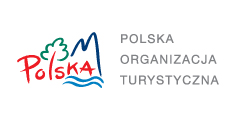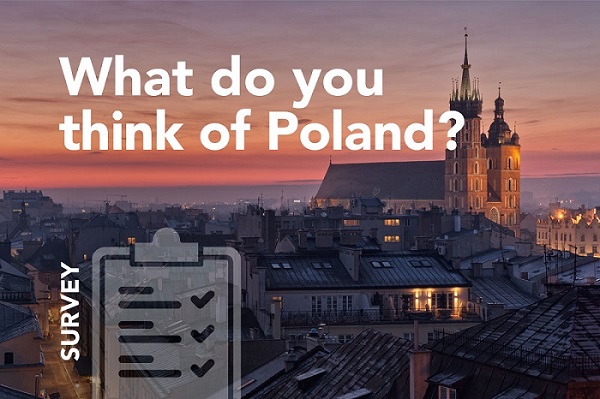RULES & REGULATIONS
Public transport tickets
Where to buy?
Tickets are sold at newsagent kiosks. One ticket is used for all means of public transport and is valid for buses, trams and the underground. In some towns you can buy tickets from the driver (at a surcharge), from ticket machines on board or at underground stations.
Ticket inspections may be frequent and the failure to produce a valid ticket may lead to a fine. The transport company inspectors are ununiformed but they carry an ID card which they are obliged to present to the passenger.
What types of tickets are available?
Not all cities have the same type of tickets. In some, you can buy tickets which are valid for a specific length of time – 15 minutes, 30 minutes, one hour, one day, 24 hours etc. Such tickets can be used to travel by any means of public transport within the allocated time. When the ticket is stamped in the machine on board, the time is printed on the ticket. The ticket should only be stamped once. In some cities also single journey tickets are available.
Rail tickets
The best place to buy rail tickets is the station. Express / IC InterCity / EC EuroCity trains are charged extra for seat booking.Vist the information desk to enquire about timetables, prices and special offers. If you happen to be too late to buy a ticket at the station, you can still board the train and, as soon as possible, ask the guard to sell you a ticket (at a surcharge).
Using your own transport
Headlights
All vehicles are required to use headlights, night day and and all year round.
Seatbelts
The use of seat belts is compulsory for front and rear-seat passengers.
Roads and motorways
The condition of Polish roads could be described as relatively good. In the vicinity of the larger cities road surfaces are improving every month. Secondary roads can be qualified as being in a satisfactory condition.
Conditions on the roads
Apart from these motorways there are many dual carriageways and single-lane roads. The surface of some of these roads has been deformed by ruts cut into the road surface during the summer by TIR trucks. In general drivers have to be a little more vigilant in Poland when driving along the minor roads in this country.
Speed limits
- built-up area – 50 km/h
- outside built-up area – 90 km/h
- dual carriageway – 120 km/h
- single-lane road – 100 km/h
- twin lane carriageway with at least two lanes per direction – 100 km/h
- motorway – 140 km/h
Road use charges
In Poland there is a toll on motorways (A1, A2, A4 and A8). These tolls are collected using two systems:
- open system: The tolls are collected at toll booths situated on motorways. The toll depends on the type of vehicle.
- closed system (viaTOLL system): The tolls are collected at toll booths situated on access roads, on junction roads and additionally on the final sections of motorways. The toll depends on the type of vehicle and the distance covered.
viaTOLL is an electronic toll collection system that charges road users for using selected sections of toll road network. Vehicles required to pay electronic tolls are the motor vehicles or combinations of vehicles with maximum permissible weight of over 3.5 tonnes and buses regardless of its maximum permissible weight.
viaTOLL system covers caravanning. Vehicles have to be equipped with little on-board units (so called viaBOX) which communicate with transmitters in toll gantries. Each time a vehicle equipped with viaBOX technology passes beneath the gantry the driver is charged for that particular section of toll road.

Customs duty
When travelling to Poland from a country outside the EU, you should take note some customs procedures and regulations. This will avoid the disappointment when some of the items you bought during your stay in Poland turn out to be subject to customs restrictions..
If you are 17 years of age or over, you may legally bring into Poland goods for your personal use and consumption, free of customs duty, as long as the quantity of the goods does not exceed:
tobacco products:
- 200 cigarettes
- 100 cigarillos or 50 cigars
- 250 g of tobacco
- a proportional quantity of all of these various products combined;
spirits and alcoholic drinks:
- alcoholic beverages with alcohol volume content of more than 22% and pure ethyl alcohol with alcohol volume content of more than 80% – 1 litre,
- alcoholic beverages, wine- or alcohol-based aperitifs, taffia, sake or similar drinks with alcohol volume content up to 22%; sparkling wines, liqueurs – 2 litres
- non-sparkling wines – 2 litres
If you are 17 years of age or over and you are a resident of the frontier zone, a frontier zone worker or a member of the crew of a means of transport used for travel between third countries and the EU, you may legally bring into Poland goods for your personal use and consumption, free of customs duty, in quantities which do not exceed:
tobacco products:
- alcoholic beverages with alcohol volume content of more than 22% and pure ethyl alcohol with alcohol volume content of more than 80% – 0.5 litre
- alcoholic beverages, wine- or alcohol-based aperitifs, taffia, sake or similar drinks with alcohol volume content up to 22%; sparkling wines, liqueurs – 0.5 litre
- non-sparkling wines – 0.5 litre
spirits and alcoholic drinks:
- 0,5 litre of spirits
- 0,5 litre of intermediary products
- 0,5 litres of non-sparkling wine
The value of the goods listed above may not exceed amount in PLN equivalent to EUR 80.00.
You should be aware of the current control regulations in Poland before taking out funds in excess of EUR 10,000.
Please be aware that you will be asked to document any other goods brought in quantities which may be reasonably considered as being imported for commercial use.
Import restrictions
You must not bring with you (unless under a special permit) such banned goods as:
- unlicensed drugs (e.g. heroin, morphine, cocaine, cannabis, etc),
- offensive weapons (e.g. firearms, flick knives, knuckledusters, swords, etc)
- indecent and obscene materials featuring children and other pornographic materials which are considered illegal in EU countries.
- counterfeit and pirated goods and goods that infringe patents (e.g. watches, CDs, etc)
Protection of national heritage
To export from Poland to any foreign country (both within and outside the EU) an object of historic value, a work of art or an object of Poland’s industrial heritage, you must obtain a suitable permit issued by the Minister of Culture and National Heritage. Antique shops or other legitimate sellers offering such objects for sale should be able to offer assistance in obtaining the required permit.
Export permits are not required in case of:
- Objects which are not entered in the Inventory of National Heritage and which are not older than 55 years;
- Objects of industrial heritage, which are entered in the Inventory of National Heritage and which are not older than 25 years;
- Works of are created by living artists;
- Library items dated after 31 December 1948;
- Other objects of historic value which are not entered in the Inventory of National Heritage.
A certificate stating that an object mentioned above does not require export permit must be obtained. Certificates are issued by the local Curator of National Heritage Monuments. Ask the vendor offering such objects for sale to assist you in obtaining the required certificate.
Avian flu
Because of the danger of avian flu, Poland – like other EU countries – does not allow import of animal products whose country of origin is outside of the EU. This ban does not apply to infant products (on condition that such products do not require refrigeration prior to consumption, and the packaging is intact). Meat and milk can only be imported under a special permit.
Visas – general information
There are many countries whose citizens can visit Poland as tourists without visas. These include all European Union countries.
Visa free travel to Poland is available to citizens of many countries outside the European Union.
Countries whose citizens can travel to Poland for up to 90 days without a visa:
Andorra, Argentina, Australia, Austria, Belgium, Bolivia, Brazil, Brunei, Bulgaria, Canada, Chile, Costa Rica, Croatia, Cyprus, Czech Republic, Denmark, El Salvador, Estonia, Finland, France, Germany, Greece, Guatemala, Honduras, Hong Kong (SAR), Hungary, Iceland, Ireland, Israel, Italy, Japan, Latvia, Liechtenstein, Lithuania, Luxembourg, Macao (SAR), Malaysia, Malta, Mexico, Monaco, Netherlands, New Zealand, Nicaragua, Norway, Panama, Paraguay, Portugal, Romania, San Marino, Singapore, Slovakia, Slovenia, South Korea, Spain, Sweden, Switzerland, United Kingdom, United States of America, Uruguay, Vatican, Venezuela.
Detailed information on rules covering entry and stay in Poland can be obtained from Polish embassies and consular offices.
A list of addresses of embassies and consulates
A visa is still required for a stay of longer than three months or when entering the country to take up paid employment.
A list of countries whose citizens can travel to Poland for up to 90 days without a visa
Alcohol & Cigarettes
Poland has no specific laws regulating alcohol consumption. There are, however, certain restrictions as to the age and venues where people are permitted to drink alcohol. It is also worth remembering that being under the influence of alcohol is not a mitigating factor if an offence has been committed. While smoking tobacco is going out of fashion in Poland, it is not prohibited to smoke in public places.
Drinking in public places
In Poland, it is prohibited to drink alcohol in public places, with the exception of properly licensed designated places, such as bars, restaurants, open air café gardens, etc.
Underage drinking
It is strictly prohibited to sell or offer alcohol to young people under the age of 18 years. Likewise, underage drinking is not allowed in licensed bars and restaurants.
Drinking & driving
In Poland, the legal limit of blood alcohol content is 20 milligrams per 100 millilitres of blood. Driving while under the influence of alcohol (between 20 mg and 50 mg) is an offence punishable by a fine. Driving while being above the 50 mg limit is a serious offence which leads to criminal conviction and possible seizure of the vehicle. Offenders face a possibility of immediate arrest and up to two years’ imprisonment.
Smoking in public places
Although in Poland it is not illegal to smoke in many public places, there are also regulations aiming at protecting non-smokers. With an increasing number of Polish people preferring a healthy lifestyle, smoking is no longer generally acceptable. The anti-smoking lobby is gaining popularity not only by promoting a healthy lifestyle for smokers, but mainly by protecting passive smokers. A nationwide campaign has been launched to declare 31 May a ‘Non Smoking Day’.
Because of these concerns, smoking is now prohibited in many places. Many such places may have, however, designated smoking areas. Therefore, in restaurants, pubs, on trains, in theatres, colleges, etc. you may only smoke in such designated areas. Smoking is strictly prohibited in places marked with special signs (a cigarette crossed with a red line).


